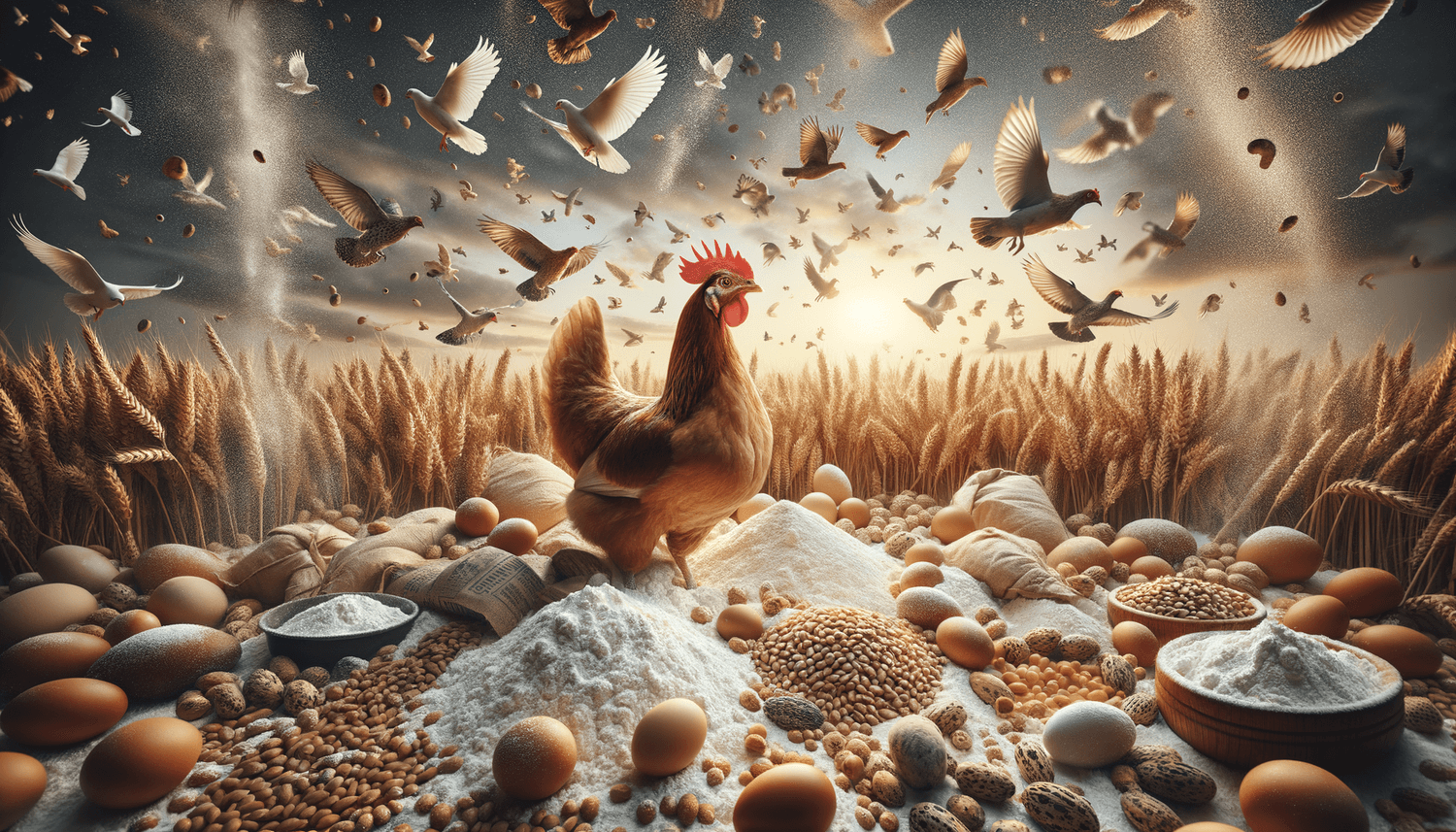Yes, chickens can eat flour in small quantities. Flour on its own isn’t toxic to chickens, but it doesn’t provide the nutrients they need from their diet. Feeding chickens large amounts of flour can lead to obesity and nutritional imbalances, so it should only be given as an occasional treat.
Quick Summary
- Chickens can eat flour.
- Flour should be given in moderation due to its low nutritional value and potential for causing obesity.
- No significant benefits; risks include obesity and nutritional imbalance.
- Recommended as a rare treat and not part of the daily diet.
Overview of Flour
Flour is a powder made by grinding raw grains, roots, beans, nuts, or seeds. It’s primarily used in baking and cooking for its binding and textural properties. Flour, especially white flour, is a source of carbohydrates, but it lacks the fiber, vitamins, and minerals that chickens require for balanced nutrition.
Benefits and Risks of Flour for Chickens
There are no significant health benefits associated with feeding flour to chickens. Risks are primarily related to its low nutritional value and high carbohydrate content, which can lead to obesity and nutritional imbalances when consumed in large amounts.
Feeding Guidelines
When feeding flour to chickens, it should be sparingly sprinkled over their regular feed or included in homemade treat recipes to ensure they still receive complete nutrition. Flour should never be a substantial part of a chicken’s diet.
Alternatives
If you’re looking to provide variety in your chickens’ diet, consider healthier alternatives like whole grains, vegetables, and age-appropriate commercial feed that offer more nutritional benefits and are safe for their digestive systems.
Expert Opinions
Poultry nutritionists and veterinarians generally advise against feeding chickens large amounts of flour. Instead, they recommend a diet composed primarily of a balanced commercial poultry feed supplemented with healthy treats like vegetables, fruits, and grains.
Frequently Asked Questions
If you’ve been contemplating adding flour to your chickens’ diet, you might have some questions about the best way to do so and the potential consequences. Below are answers to some common inquiries on this topic.
How often can I give my chickens flour?
Flour should be given on a very limited basis, not more than once a week, and in small amounts. It’s not a necessary part of their diet and should be treated as an occasional treat rather than a regular component.
Can baby chicks have flour?
It is not recommended to feed baby chicks flour as they require a diet high in protein for proper growth and development. Stick to chick starter feed for their nutritional needs.
Could flour cause any health issues to chickens?
Yes, excessive consumption of flour can lead to obesity, nutritional imbalances, and potentially impact the digestive function in chickens. Flour should be a minor treat and not a staple of their diet to avoid these health issues.

















